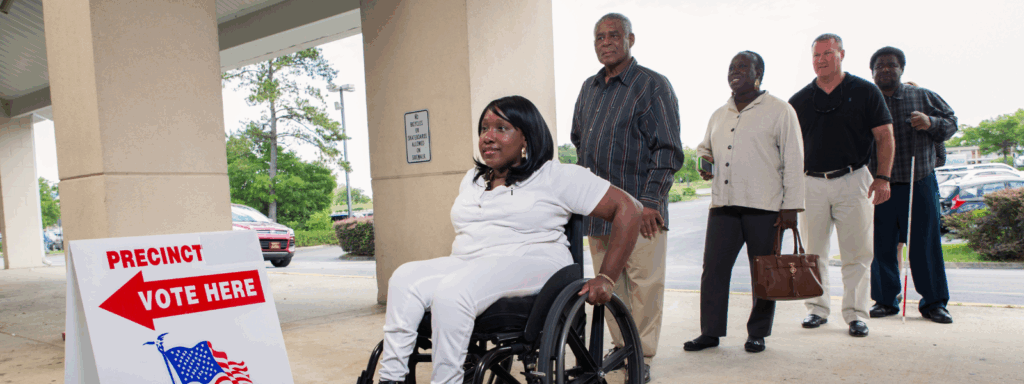On Monday, a judge ruled that private citizens have no right to sue for disability violations of the Voting Rights Act of 1965.
The case was heard in the Eighth Circuit Court of Appeals, which covers Arkansas, Iowa, Minnesota, Missouri, Nebraska and North Dakota, and for now, guarantees that disabled voters in those states have no direct recourse when those laws are violated.
“Based on the text and structure of the VRA, Congress did not give private plaintiffs the ability to sue,” Judge Steven Grasz noted in his written opinion.
The Eighth Circuit contains 11 judges, 10 of which were appointed under Republican administrations with four being direct appointees of Donald Trump. Under the court’s jurisdiction, Missouri, Arkansas, Nebraska, and Iowa have all enacted party-line voter suppression laws in recent years and today’s ruling means they would have to face those governments in cases of alleged discrimination.
The plaintiffs, Arkansas United, is a group known for assisting mostly immigrants with voting rights issues, as sections of the VRA has provisions for ESL (English as a Second Language) voters in addition to those with disabilities.
Monday’s ruling places the ability to sue in the hands of state attorneys generals – an unlikely event in states that have already dedicated themselves to a string of voter suppression laws.
In 2009, Arkansas passed a law that said voters with a disability could only have six people, excluding poll workers, assist them with voting. Three years later, the courts sided with Arkansas United and struck down the law. But, the Eighth Circuit eventually reversed the ruling after an emergency motion and sent the case back to the lower district court.
In May, the Eighth Circuit also held that people of color could not individually sue for discrimination based on race, but that ruling was blocked by the United States Supreme Court last Thursday in a 6-3 vote.



